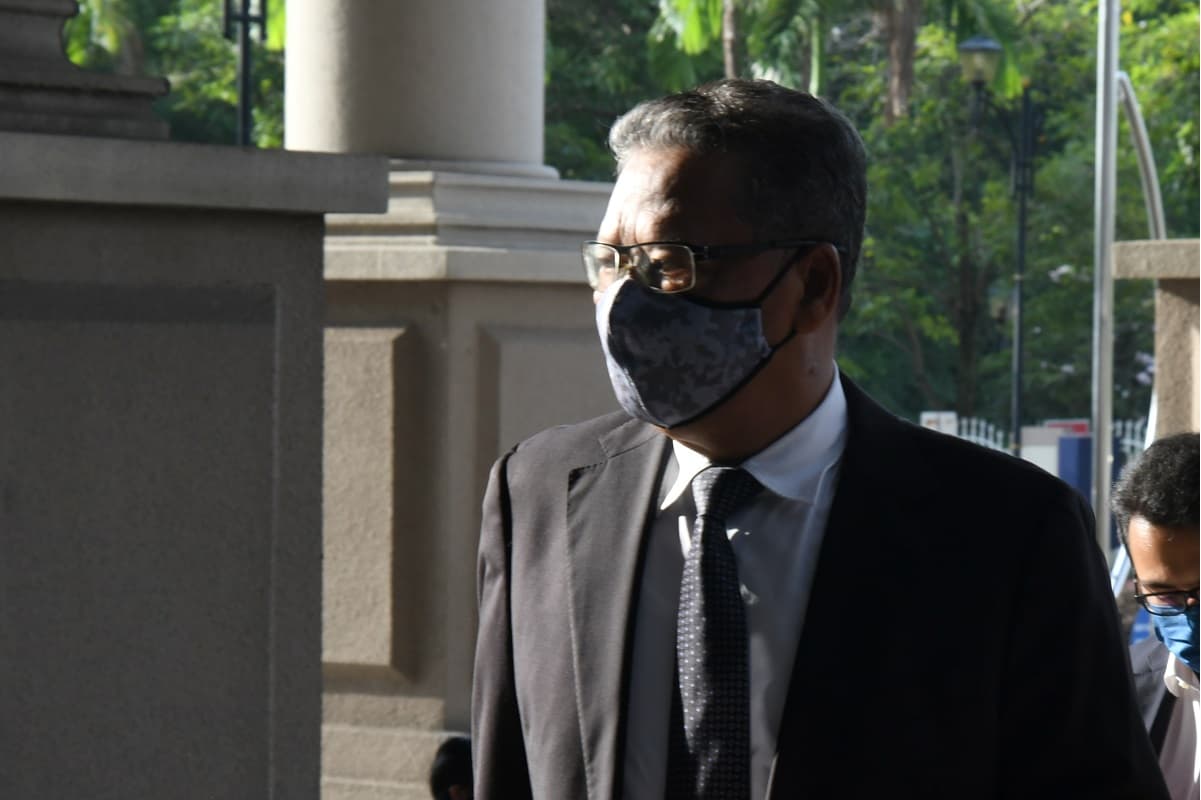
KUALA LUMPUR (April 6): Malaysia did not seek mutual assistance from other countries that were already investigating the 1Malaysia Development Bhd (1MDB) scandal in 2015, because authorities here did not want to prejudice local investigations, former attorney-general (AG) Tan Sri Mohamad Apandi Ali told the High Court today.
Apandi was testifying in his defamation suit against Lim Kit Siang over an article written by the veteran politician on May 6, 2019, in which he called on the former AG to explain why he “aided and abetted in the 1MDB scandal”.
During cross-examination today, Lim’s counsel Sangeet Kaur Deo asked Apandi if he had reached out to the United States Department of Justice (DoJ) — which had already begun its investigations on 1MDB — via the Mutual Assistance in Criminal Matters Act 2002 (MACMA) which makes provisions for mutual assistance in criminal matters to be rendered and sought between Malaysia and other countries.
Apandi said he had not sought to engage foreign counterparts as it would prejudice the investigations initiated by the Malaysian Anti-Corruption Commission (MACC).
Sangeet: Was it not relevant to you? The DoJ investigations which led to involvement of Malaysians siphoning off money. Was it not relevant to reach out? My question to you as AG, was it not relevant [to use the MACMA to engage foreign agencies]?
Apandi: The proper agencies were investigating 1MDB at this time.
Sangeet: DoJ wasn’t the only foreign agency [that] commenced investigations. Do you agree with me the reason foreign agencies were involved was because monies from 1MDB left Malaysia and made [their] way to other countries around the world?
Apandi agreed that there was money taken out but said he did not know if the money was spent around the world.
Sangeet: You agree that there were cross-border complexities involving financial institutions of other countries.
Apandi concurred.
Sangeet: You agree that investigations locally was insufficient.
Apandi: Sufficient or otherwise, that is determined by investigations parties.
Justice Datuk Azimah Omar had then interjected and compelled Apandi to answer the question as to whether the local investigations were sufficient. Apandi then agreed to the suggestion.
It was also put to him that only he as the AG at that time had the power to enforce the MACMA, however he agreed to the suggestion from Sangeet that he “refused to seek” or “provide assistance to foreign agencies”.
Upon re-examination by his lawyer M Visvanathan, Apandi called the assertions by Lim's lawyer that the former AG sat back and did nothing untrue and an “insult” to him.
“I am very strict in my work. I keep a record of all my investigation papers and I have a date by when they should be completed. If they are not completed by that date, then I call the officer in charge and they have to explain why there is a delay in investigations,” he said.
“In 1MDB there was a delay in investigations because quite a number of witnesses have fled, gone missing and [were] difficult to trace.”
“To say that I sat back and didn’t take action isn’t correct. I strongly believe in justice and administering it… To say that I sat back and didn’t do my work is not true and an insult to me,” he said.
Earlier, during Sangeet’s cross-examination of the witness, Apandi said he did not know there was a cover-up or reports of a cover-up of the 1MDB scandal.
He also admitted that he had not heard of the bestselling book about the 1MDB scandal “Billion Dollar Whale”.
The trial continues tomorrow morning before Justice Azimah.